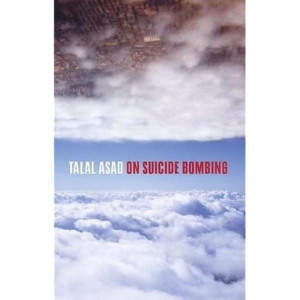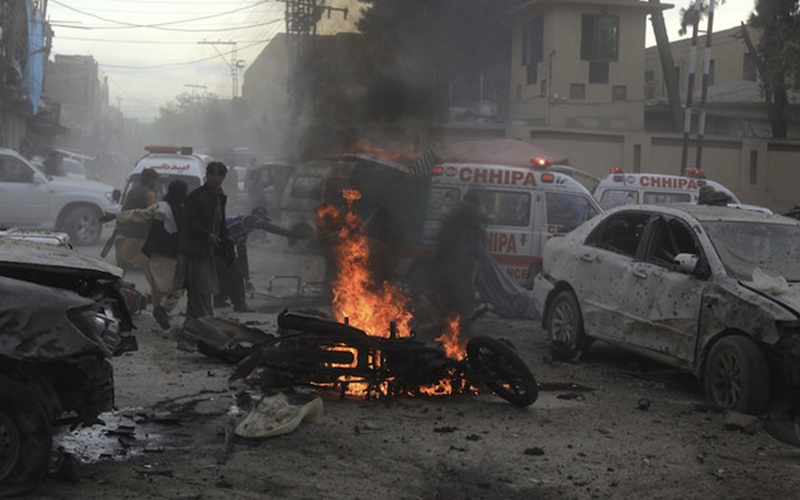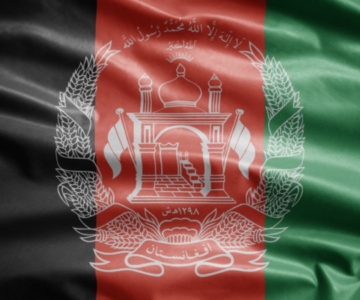Pak Tea House published a book review of Asad’s book on suicide bombings. In continuation of that series we are posting Khaled Ahmed’s review of the same book. Those interested may wish to check these links on suicide bombings series: narratives of terror; a liberal reaction here; and a psychological analysis here (Raza Rumi)
A counter-view of suicide-bombing by Khaled Ahmed

Pilots that bombed innocent German civilians during the war were doing the right thing under law and could be not be dubbed terrorists, but today’s militant who kills innocent people through suicide is committing terrorism
Talal Asad is a professor of anthropology at the Graduate Centre of the City University of New York, and has written on aspects of suicide-bombing that most writers on the subject ignore or are not qualified to discuss. He says the idea of the war on terror has developed in the United States, and the theorising on ‘just war’ has unfolded there and in the UK and Israel. He disagrees with some of the assumptions made at these centres and wishes to posit that ‘creation of terror and perpetration of atrocities are aspects of militant action in the unequal worlds we inhabit and the emotion with which we justify or condemn particular acts of death dealing’.
An idea of how he proceeds can be had from how he proceeds from the problem of culpability of Saddam Hussein. That he killed and bombed Iranians and his own people should be understood in the light of the fact that his culpability was watered down by the fact that the US supplied him intelligence against Iran and Europe helped build his chemical weapons. He thinks that a suicide-bomber acts to win approval from his community. One can expand the concept of the community to include the state which actually expects its soldiers to kill themselves if need be for the sake the motherland. This has nothing to do with the legality of the war that the state may be undertaking.
There are other funny formulations. For instance, pilots that bombed innocent German civilians during the war were doing the right thing under law and could be not be dubbed terrorists, but today’s militant who kills innocent people through suicide is committing terrorism. War and terrorism are posed as opposites, while one can be justified the other cannot. What is permissible violence and what kind of violence is impermissible? He considers the view that violence used to establish a community is valid but violence committed to expand and extend it is invalid. And how does one define terrorism? He gives us a professional adviser’s definition of it:
‘Terrorism is a generalised construct derived from our concepts of law, morality and the rules of law whereas actual terrorists are shaped by culture, ideology and politics — specially inchoate factors and notions that motivate diverse actions’. Such definitions actually divide rather than join because of their civilisational blind spots. Above all, the validity of a definition is attested by the number of people it joins. The truth is that the Muslim world doesn’t go along with the West’s definition of terrorism. Of course this gulf tends to strengthen the hands of those who practise terrorism and hurt also the very Muslim population that disagrees with the Western definition.
Torture and graphic details of torture practised by nations that go by their conventions of war also prepares the personality that will commit suicide. Decades of torture practised on the basis of CIA manuals in Latin America has gone into the preparation of the desperateness of terrorism. No surprise therefore that suicide-bombing is then presented as an act of sacrifice to the community that is supposed to own it. The sacrifice literally means the act of making sacred. Although most religions outlaw it, there is something primordial about killing oneself ritually as sacrifice that moves humanity today. Those who kill themselves as bombs make a gift of themselves to the nation and the umma.
Islam forbids suicide and uses the word qurban for sacrifice — and act of drawing closer to Allah — and not hadiya or gift. Asad thus separates the Muslim view from the Christian view which borrows from the act of Christ laying down his life for humanity. But the actual ritual could be primordial and therefore linked to the part of Muslim mind which is pre-Islamic. There is also the condition of rage which precedes all religions as a human trait which the religions could have come down to moderate. Asad quotes Hannah Arendt who says that ‘rage rises only when there is reason to suspect that conditions could be changed and are not”. Asad suggests that rage here doesn’t mean uncontrollable rage when it is used to plan suicide-bombing.
This of course is true because suicide-bombing is not strictly an individual act although the decision to die is individual. There is a whole chain of ‘minders’ who plan and then execute the deed. Even money changes hands and there are mercenary mullahs who specialise in ‘convincing’ youths to die. Some boast that they can get a youth to die after 15 minutes of grilling. The author correctly refers to the October 2000 intifada that came in the wake of the rage provoked by Ariel Sharon’s entry into the mosque of Al Aqsa.
The question of relating suicide-bombing to personal morality and political action forces one to see the differences that characterise the jihad going on in Palestine, Kashmir and elsewhere where the umma is invoked as community ‘that immortalises human deeds’. The author asks: ‘So how unique is suicide bombing? If it is special—and I believe that in a sense it is—this is not because of the motives involved. Intentions may be validly deduced from actions in the sense that they define the primary shape of the action (the agent deliberately kills himself together with others, and that is what makes it a particular kind of action), but motives are to be distinguished from causes, because we speak of motives when we demand an explanation in terms of reasons’.
Finally what arouses the most intense reaction to suicide-bombing is the shock that all suicide still brings to humanity. The victims are not exclusively Americans and Jews but in countries like Iraq and Pakistan, Muslims themselves. What is even more traumatising — which arouses in us the temptation to blame it on America — is when a Muslim suicide-bomber speaks on a tape saying he is going to kill a Shia or a Sunni because the act will take him to paradise. *
On Suicide-Bombing;
By Talal Asad; Columbia University Press 2007;
Pp128; Price £19.95;
Available at bookstores in Pakistan



